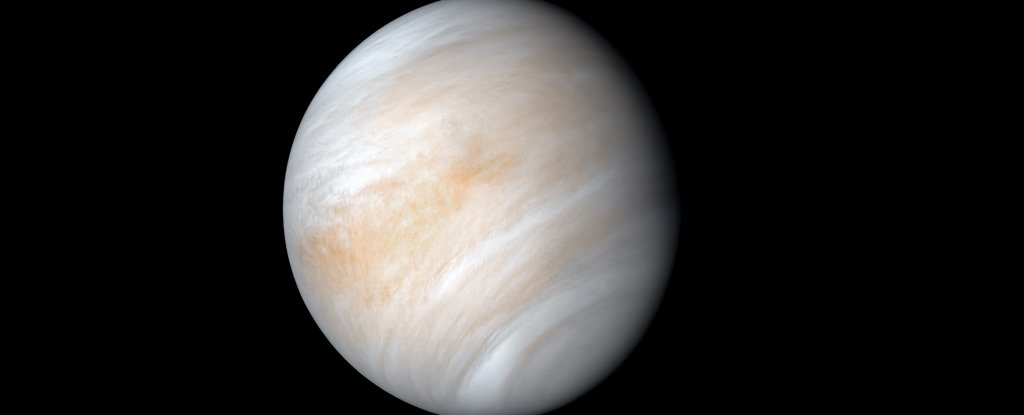
Now a team of researchers claims they've discovered the amino acid glycine in Venus' atmosphere.
The paper announcing the finding is titled 'Detection of simplest amino acid glycine in the atmosphere of the Venus'.
Though glycine and other amino acids aren't biosignatures, they are some of the building blocks of life.
The upper atmosphere of Venus may be going through nearly the same biological method as Earth billions of years ago.".
"We hypothesize that trace amounts of phosphides formed in the mantle would be brought to the surface by volcanism, and then subsequently ejected into the atmosphere, where they could react with water or sulfuric acid to form phosphine."?
Researchers have identified a region of Venus' atmosphere that might be able to host life.
Also, the detection of glycine matches up with the detection of phosphine.
"The latitude dependent distribution of glycine roughly matches (within ?10?) with the detection limit of recently detected phosphine and with the proposed upper Hadley-cell boundary where gas circulates between upper and lower altitudes.".
"It should be noted that detection of glycine in Venus' atmosphere is a hint of the existence of life but not robust evidence.".
The glycine detected in Venus' atmosphere could have been produced via the same pathway as the Miller-Urey experiment.
There are also other chemical pathways to glycine that are possible in Venus' atmosphere.
"In astrophysics, chemical physics and biophysics, synthetic reaction routes of the simplest amino acid glycine, from simple molecules have great significance with chemical evolution and the origin of life," the authors write.
"The detection of glycine in the atmosphere of Venus may indicate the existence of an early form of life in the atmosphere of the solar planet because amino acid is a building block of protein.
"Though in Earth, glycine produces by biological procedures, it is possible that in Venus glycine is produced by other photochemical or geochemical means, not common on Earth." Venus is very different from Earth, and there are processes taking place there that are not present here on Earth.
For example, the spectroscopic signal of glycine is very close to that of sulfur oxide, so it's possible there's an error in the detection of glycine.
Also, glycine is the simplest of the amino acids and has been found elsewhere.
The detection of glycine, if confirmed, is another intriguing development in the quest to understand the rise of life